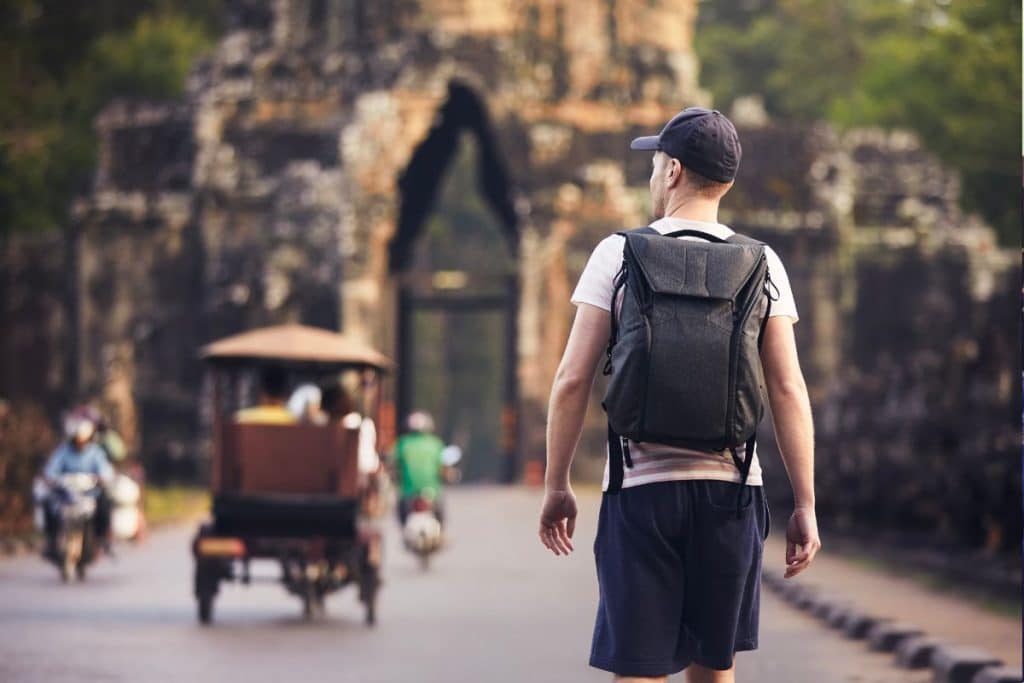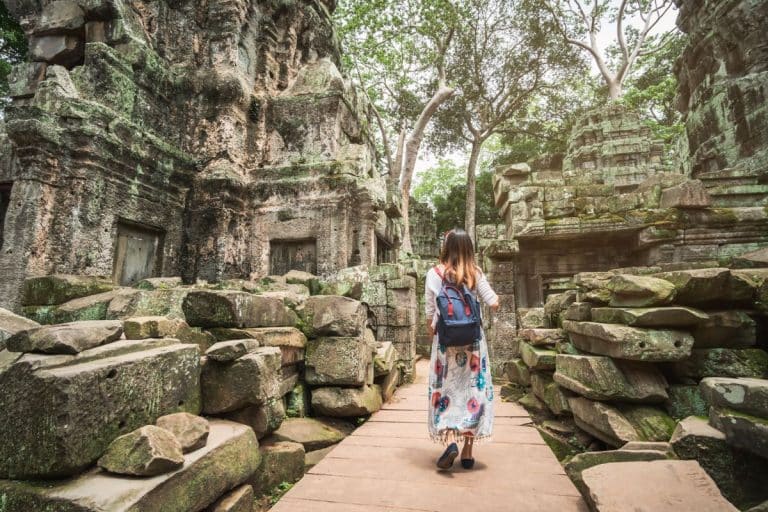Historic sites and vibrant cultural experiences make Cambodia a popular emerging tourist destination. The temples of Angkor Wat command great attention. A growing number of backpackers enjoy outdoor adventures in this Southeast Asian nation.
With careful planning, Cambodia is a somewhat safe destination. However, incidents of theft, scams, and corruption have occurred.
Remnants of the violent and repressive Khmer Rouge regime that existed under authoritarian leader Pol Pot during the late 1970s have also left an uncomfortable, indelible mark.
The current U.S. Government Travel Advisory is Level 1 for Cambodia, which means “exercise normal precautions”.
Crime and Safety in Cambodia
Cambodia has dramatically changed since the genocide that took place throughout this country more than 40 years ago. Some remote destinations continue to hide landmines as evidence of those terrible days, though visitors to most tourist destinations should experience a moderately safe visit.
Those planning to visit former battlefields, orphanages, or other sites related to the Khmer Rouge insurgency should exercise great care, dress and act modestly and respectfully, and expect to see many people with missing limbs. They should also avoid taking photographs of military locations or personnel.
Petty theft occurs throughout Cambodia, especially at tourist locations. Wise travelers carry only what they need, and remain cautious about keeping valuables out of sight when in public.
Unattended belongings may disappear, whether left on a table for a moment or brought onto a local open-air taxi known as a tuk-tuk. In addition to carrying only a small amount of necessary cash and bank cards, travelers should take a picture of their passport and leave the original in a locked safe or another secure area.
Thieves prowl, looking for unattended cell phones, high-end jewelry, and documents that should, in reality, remain in a secure area, such as a hotel safe.
In addition to theft, visitors to Cambodia should be aware of corruption by police, border guards, and other public officials. Those traveling to Cambodia should obtain their tourist visa prior to leaving for Cambodia to prevent guards from demanding a bribe for this entry document.
Scams–especially those involving transportation and admission fees–regularly occur in certain urban and rural areas, including those frequented by tourists. Those traveling alone, including women, should be careful in bars, dark alleys, and unfamiliar locations away from popular attractions.
Things to remember for a safe Cambodia visit

Common-sense travel practices enhance the safety of a Cambodian vacation:
Plan Ahead for Safe Entry: Crossing at a land border may cause difficulty in places where locals attempt to sell fake visas. Generally, tourists are better off flying into Cambodia rather than crossing a land border.
Always Guard Valuables: Crimes of opportunity abound, even in supposedly safe tourist districts. Although violent crimes are relatively rare, theft is common.
Secure Items Taken for Day Trips: Whether walking along the streets near markets in Phnom Penh or visiting Siem Reap on the way to Angkor Wat, visitors to Cambodia should keep valuables on the front side of their bodies and look out for pickpockets and other petty thieves.
Avoid Nighttime Travel Whenever Possible: Avoid traveling in remote rural areas at night, and remember that crimes such as theft are common even in “better” areas of cities such as Phnom Penh and Siem Reap.
Hire a Trustworthy Guide: First-time visitors unfamiliar with the Cambodian language and culture should secure the services of a guide familiar with chosen destinations, as well as which areas to avoid.
Research before Going off the Beaten Path: Some rural areas still have landmines. Guides fluent in Cambodian can steer visitors away from dangerous areas, such as high-crime areas in Siem Reap and Sihanoukville.
Enjoy Touring Cambodia
Exercise care and plan ahead. Avoid drinking tap water, and carry up-to-date travel insurance for unexpected emergencies.

